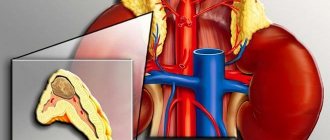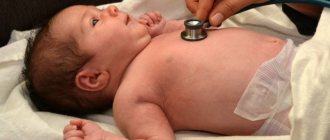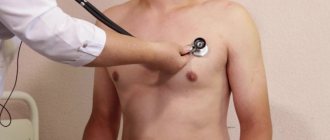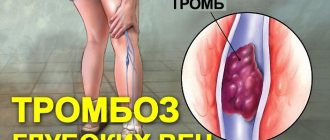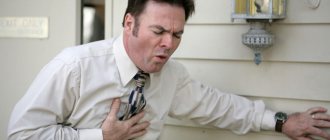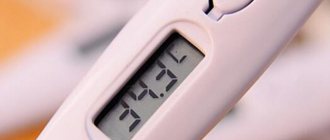Local therapist
Serebryakova
Oksana Evgenievna
Experience 26 years
Local therapist, candidate of medical sciences, member of the Russian Scientific Medical Society of Therapists
Make an appointment
High temperature is an unpleasant symptom, characteristic of many diseases, and a sure indicator of the presence of a disease. Reducing the reading to normal does not mean being cured, and you also need to know what temperature to lower. It is necessary not only to achieve a decrease in temperature, alleviating the patient’s condition, but also to eliminate the source of the inflammatory process.
To effectively fight the disease, you need the help of a qualified doctor who will determine the cause of the condition, which manifests itself:
- with chills of varying severity;
- feeling of loss of strength;
- headache, aches and pains;
- increased sweating;
- arrhythmia;
- loss of appetite;
- dry lips and skin.
The concept of normal for body temperature
Normal body temperature is considered to be 36.6°C, but this figure can fluctuate. The lowest value is observed in the morning, the maximum in the evening. An increase in temperature is facilitated by eating, drinking alcohol, exercising, stimulating the nervous system, being under the sun, or in a steam room. It is considered normal if a person’s temperature is 36.2°C in the morning and 36.7°C in the evening. A peculiarity of the female body is that the temperature decreases a few days before ovulation and increases when ovulation occurs.
The norm for an adult is considered to be between 35°C and 37°C, for children under 3 years of age – up to 37.5°C. In summary, a temperature of 35°C should not cause panic.
How to measure temperature:
- if you measure under the armpit, then a value of 36.6°C is considered normal;
- if in the mouth, then the indicator is half a degree higher;
- if in the rectum, then to get the result subtract 1 degree from the value on the thermometer.
The range from 37.1°C to 38°C is considered to be above normal. If low-grade fever persists for a long time, measures must be taken. An indicator of 38.1°C is already a high temperature that requires urgent help for the body.
Why is it dangerous when the temperature rises above 38°C?
If a high temperature occurs, then this is a sure sign of a sharply worsening pathology. In 99% of cases this is an inflammatory process. If the condition is long-term, it means that the malfunction in the body is serious, so you cannot do without qualified medical care. The patient's body reacts to the infection by stimulating the immune system, accelerating metabolism, producing antibodies, and increasing blood circulation.
At this time, microbes lose activity, but the respiratory and cardiac systems bear an increased load. The nervous system takes a hit, the body loses water. If the condition does not change, the temperature remains, then blood circulation in the internal organs will deteriorate. The most dangerous stage is when the indicator rises above 41°C. Before the doctor arrives, the patient must take antipyretics for fever.
Can high temperature cause complications on the heart: a cardiologist's view
Numerous microorganisms - bacteria, viruses, fungi and other protozoa - can have a direct damaging effect on the heart muscle. However, in most cases, myocardial damage is observed as a secondary phenomenon, a complication of viral and bacterial diseases.
The effect of hyperemia on the functioning of the body
The penetration of infectious agents into the human body causes a natural response of the immune system aimed at suppressing their vital functions. The essence of the process comes down to the following: microbes, having penetrated the tissues of the body, release toxic substances, which are protein compounds. The presence of foreign elements initiates a series of biochemical reactions for the active synthesis of specific antibodies. The thermoregulation center of the brain is activated, which leads to a rise in temperature - hyperthermia, the companion of which is a feverish state.
High temperature is a factor that forces the heart to work in an “emergency” mode due to disruptions in metabolic metabolism, changes in the quantitative and qualitative composition of the blood, and rapid disruption of the water-salt balance. Hyperemia is manifested by an increase in the frequency of myocardial contractions, a rise in blood pressure, and centralization of blood flow. Poor blood circulation is the cause:
- headache;
- dizziness;
- seizures;
- fainting states.
Complications
Detailed diagnostic methods that cardiology in Nizhny Novgorod has in its arsenal show: in cardiac patients with hyperemia, sinus arrhythmia is recorded. Patients with fever are at risk of dangerous conditions: acute heart failure, persistent increase in the number of red blood cells - polycythemia. Hyperemia poses a threat of chronic insufficiency of cerebral blood flow and the development of a critical condition - DIC syndrome: acquired disorders of the coagulation capabilities of the circulatory system. At the same time, a sharp drop in temperature caused by taking powerful antipyretic drugs can provoke a decrease in blood pressure to critical values, which poses a threat of collapse.
One of the common ailments that is accompanied by hyperemia is tonsillitis - an inflammatory process that affects the palatine tonsils. Often, after suffering from a sore throat, especially with inadequate and not comprehensive therapy, severe complications of the disease from the cardiovascular system occur. Among the dangerous consequences of tonsillitis is acute rheumatic fever, which destroys the myocardium, endocardium, and pericardium. Chronic rheumatic heart disease may develop, the frequent outcome of which is an acquired defect, a malfunction of the valve system.
Another unfavorable outcome of angina is myocarditis - an inflammatory lesion of the heart muscle, causing disruption of all functions of the organ. Tonsillogenic cardiopathy also includes myocardial dystrophy. A dangerous consequence of streptococcal infections is acute septic endocarditis.
Therefore, at the first signs of viral or infectious diseases and an increase in temperature, it is necessary to urgently seek medical help for differential diagnosis and choice of treatment strategy.
Why is the temperature rising?
Sometimes it seems that a fever appears for no reason. But any inflammatory process can cause this condition. Inflammation can occur due to fungi, viruses, and bacteria. Often, a temperature of 38.5°C is a concomitant symptom, for example, with pain in the ear or throat, against the background of signs of ARVI. Patients are frightened by asymptomatic fever, which is observed:
- at the early stage of influenza, ARVI - when there are no catarrhal signs yet;
- with a sore throat - simultaneously with a sore throat;
- with chickenpox – in the first 2-3 days of illness a fever appears and then a rash;
- with an abscess - in the fight against pus, temperature peaks are replaced by normal values during the day;
- for glomerulonephritis, pyelonephritis - for inflammation in the kidneys;
- with appendicitis - often without pain;
- with hemorrhagic fever - with the bite of wild animals, muscle pain, rash;
- with encephalitis, meningitis - simultaneously with tension in the neck muscles, if it is impossible to lower the chin to the chest, pain in the head, blurred vision, nausea.
How to diagnose
If pain in the heart appears after a high fever or during a cold, immediately consult a doctor, because this is both a sign of intoxication and the first signal of dangerous diseases: myocarditis, pericarditis, rheumatic fever.
First of all, the doctor will conduct a thorough history of the disease, examine, prescribe examinations: a general blood and urine test, a biochemical profile (total protein and its fractions, AST, CPK, creatinine, urea), an electrocardiogram. If necessary, the diagnosis is supplemented with echocardiography, an analysis for the detection of antibodies to streptococcus, and a chest x-ray.
Differential diagnosis:
- Acute rheumatic fever is a systemic disease primarily affecting the cardiovascular system, caused by group A β-hemolytic streptococcus:
- previous sore throat;
- increased body temperature, pain in the heart, tachycardia, weakness;
- possible appearance of arthralgia, chorea;
- auscultation – pathological noise;
- laboratory diagnostics - increased SOE, leukocytosis, increased levels of C-reactive protein, increased titers of antistreptolysin-O;
- on the ECG - rhythm and conduction disturbances, prolongation of the P-Q interval;
- on ECHO-KG - pathology of the heart valves.
- Myocarditis is an inflammation of the muscle membrane of a viral, bacterial or fungal nature. There are also variants of the disease without a pathogen: autoimmune, aseptic and toxic. The leading symptoms in these cases are intoxication, increased body temperature, weakness and shortness of breath, aching and burning pain in the heart area. The condition requires inpatient treatment and long-term outpatient observation:
- complaints of shortness of breath, pain in the heart area not related to exercise;
- auscultation - weakening of tones, arrhythmia, decrease in pulsation strength in the apex of the heart;
- laboratory changes - increased LDH, CPK, AST, increased ESR, C-reactive protein, leukocytosis;
- on the ECG - rhythm disturbances in the form of tachycardia, extrasystole, atrial fibrillation, changes in the T wave;
- cardiomegaly on x-ray.
- Pericarditis is an inflammatory process of the pericardial sac, which is often associated with the accumulation of fluid in its cavity. The pathology is characterized by several signs that help to clearly suspect and diagnose it. These include pain in the lower part of the sternum, the intensity of which changes with changes in body position; “crunching” noise upon auscultation of the heart; Typical pose of a patient - a “praying Bedouin”:
- provoked by viral and bacterial infections;
- complaints of weakness, dull pain behind the sternum, which radiates to the arms and intensifies when lying down;
- laboratory diagnostics - nonspecific changes characteristic of inflammatory diseases;
- X-ray – enlarged shadow of the heart, disappearance of the waist.
4. Endocarditis – inflammation of the inner lining (rare situation). It is more common among injection drug addicts due to constant infection of the intravascular space. The disease causes severe intoxication, high temperatures, and serious hemodynamic disturbances. The treatment plan includes reserve group antibiotics.
What should you do if you notice a symptom?
If the patient is either cold or hot, what to do with the temperature? When he gets chills, he should cover himself with a blanket, and when it gets hot, put on dry, light clothes. You can cover yourself with a sheet. The patient's main regimen is bed. If the child does not want to lie down, make sure that he does not engage in too active games, preventing the body from overheating.
It is necessary to ensure that the air in the room is periodically renewed. While airing, the patient can go to another room. You need to constantly replenish fluid reserves in the body by gradually drinking green tea, diluted juices, fruit drinks, and compotes. Water procedures cannot be taken; only wiping adults with a solution of water and vinegar 9% in a 1:1 ratio is allowed. Rubbing yourself with alcohol or cool water can make your fever worse.
Urgently call an ambulance for chills
If the temperature becomes high, it is recommended to call an ambulance in the following cases:
- headache and temperature above 38.5°C, drowsiness, lethargy;
- stomach pain and fever, especially if there is also vomiting and diarrhea;
- rash;
- convulsions, other severe conditions;
- lack of effect from taking antipyretics;
- overcoming the mark of 39.5 °C.
The ambulance service of JSC "Medicine" (clinic of Academician Roitberg) in the Central District of Moscow provides medical assistance around the clock in case of emergency. An urgent call to the team can be made by calling +7 (495) 229-00-03.
When should you go to the doctor?
If fever and blood pressure, cough, and aches appear simultaneously, you should not self-medicate. It is recommended to make an appointment with a doctor. JSC "Medicine" (academician Roitberg's clinic) in the center of Moscow invites you to use the services of experienced therapists who will diagnose the disease and prescribe the correct treatment. You don’t want to put your health at risk, so make an appointment immediately to prevent complications from developing! The clinic has a modern diagnostic department, laboratories for testing, and a hospital. If the need arises, a full range of medical services can be obtained without leaving the clinic.
Symptom treatment
To figure out how to bring down the temperature, you need a correct diagnosis. An experienced doctor, based on the results of tests and studies, determines the cause of the fever, prescribes medications, procedures, or refers to a specialist for additional research. The goal is to identify the source of the inflammatory process in order to find the right treatment complex. Treatment for high fever depends entirely on the underlying cause and may include antipyretics, antibiotics, probiotics, etc.
Symptom during pregnancy
The temperature in pregnant women rises above the normal limit due to acute respiratory viral infections and influenza. It can harm the baby, especially if the mother takes medications containing aspirin. Therefore, pregnant women with fever need urgent consultation with a doctor to prescribe the correct dose of medications. If the temperature jump is small, you can take homeopathic remedies prescribed by your doctor.
Along with the tablets in the 1st trimester, you can drink herbal teas, fruit drinks, compotes, and juices. At later stages, drink concentrated herbal infusions, which are not consumed in large quantities to avoid swelling. Decoctions of leaves, raspberries, coltsfoot, plantain, and infusion of white willow bark have healing properties. Rubbing with a vinegar solution helps.
Treatment at home
If you find cold symptoms and a temperature above 37°C and weakness, you can start taking home remedies to support the body. If the value on the thermometer does not exceed 38.5°C and the body feels more or less well, there is no need to lower the temperature. At this time, harmful bacteria die, and the immune system works at full capacity.
However, if the patient’s condition is serious, he does not tolerate the temperature well, it needs to be brought down. At 40°C the blood begins to thicken and coagulate, so you should take antipyretics. In order not to cause negative effects on internal organs, many patients prefer folk remedies with a mild effect.
Folk remedies for fever for children:
- children's enemas with a soda solution (1 tsp of soda for 1 glass of water) or chamomile decoction;
- wipe the child’s body with green grape juice;
- put on socks moistened with a solution of water and vinegar in a 1:1 dilution for 15 minutes;
- Infants and children under 3 years of age can be briefly wrapped in a wet sheet or towel to relieve the condition.
If the temperature is 39°C or 40°C in adults, it must be brought down:
- wiping and a cold compress - a cotton cloth is moistened with water at room temperature or a solution of water and vinegar;
- drinking plenty of fluids - it is necessary to prevent dehydration of the body by taking drinking water, freshly squeezed juices or warm herbal infusions, honey water (1 tsp of honey for 1 glass of warm water);
- fasting - give the body a rest (food is a load), concentrate energy on fighting inflammation.
Living with Heart Failure
Living with Heart Failure
The heart is a muscular pump that pumps blood through the vessels to provide the body's cells with oxygen and nutrients.
- A healthy heart beats 50-80 times per minute
- Blood moves from the heart through the arteries and returns to the heart through the veins.
- As blood passes through the lungs, it binds with oxygen, which is then distributed throughout the body along with nutrients obtained from food.
What is heart failure?
In heart failure, the left ventricle has to push blood into the aorta with great effort.
Gradually it stretches, its walls become thinner, and the heart takes on the shape of an apple.
The left ventricle is then unable to contract effectively and push blood into the aorta. Symptoms of heart failure increase.
Clinical manifestations of chronic heart failure
Weakness and fatigue
Because in heart failure, the muscles do not receive enough blood and oxygen, patients may feel tired even after a full night's sleep.
Loads that were previously well tolerated now cause a feeling of fatigue (the desire to sit or lie down).
An additional day's rest is required.
Your doctor will determine the severity of your condition depending on the condition of your heart muscle and the severity of your symptoms.
With functional class I , you may have virtually no complaints, except for slight weakness and palpitations.
With functional class II
Shortness of breath can only occur with heavy exertion. You begin to experience some limitations in physical activity
With III heart failure
Shortness of breath may occur with light normal activities, such as walking or getting dressed. However, you feel good at rest.
With IV heart failure
You may feel shortness of breath and palpitations even at rest, and any physical activity causes discomfort.
Diagnosis of heart failure
- The doctor will ask you in detail about your medical history and complaints. After this, he will conduct a physical examination (measure blood pressure, listen to the heart and lungs, then examine the condition of the skin and subcutaneous fat, etc.). Instrumental and laboratory tests will be prescribed.
Electrocardiogram (ECG)
- This test will help determine if you have heart rhythm disturbances and ischemic damage to the heart muscle.
Echocardiography (EchoCG)
- This is a method of ultrasound examination of the heart. It allows you to identify structural disorders of the heart muscle and the condition of the heart valves. This method is also used to determine the size of the heart chambers and the speed of blood flow between the chambers.
Heart failure studies
Exercise test
This is an electrocardiographic study against the background of controlled physical activity. Running on a special track (treadmill) or cycling is used as physical activity. With the help of this study, hidden disorders of the blood supply to the myocardium are revealed that do not appear at rest.
Treatment of heart failure
Treatment consists of: Diet, exercise, medication, lifestyle changes.
Your role:
- You and your doctor and nurse should become partners in the fight for your health.
- Try to understand as much as possible the causes and consequences of your disease and treatment methods.
- Feel free to ask your nurse and doctor if you have any questions or concerns.
- Before each visit to the doctor or conversation with the nurse, make a list of questions you would like to ask. It may be difficult for you to concentrate and remember everything that interested you during your appointment.
Weigh yourself every day and record your weight daily
IMPORTANT!
Tell your doctor if your weight changes by more than a kilogram.
- Stick to a low-salt diet
- Follow an exercise plan approved by your healthcare professional
- Take your medications as prescribed.
- Monitor your symptoms and tell your doctor if your condition changes.
- Quit smoking
- Try to eat a balanced diet, including fruits and vegetables in your diet.
- Your condition may require nutritional therapy; discuss the need for such a prescription with your doctor.
- Reduce your alcohol intake.
- Do not use drugs that you learned about from advertising or from the words of friends. They can cause significant damage not only to your wallet, but also to your health.
- Sleep at least 8 hours daily.
Treatment goals for heart failure
- Increased life expectancy
- Improving heart function or preventing further deterioration
- Controlling heart failure symptoms
- Improving the quality of your life.
Lifestyle interventions
Weight control.
Why should you weigh yourself every day?
- Fluid can accumulate in the subcutaneous fat and abdominal cavity.
- The appearance of edema indicates that negative changes have occurred in your condition. At the same time, your weight can increase very quickly.
- If you weigh yourself daily, you will be able to detect changes early enough for your doctor to intensify your therapy.
This will help avoid hospitalization.
To ensure your weighings are accurate:
Weigh yourself every morning
- In the same clothes
- After urination
- Before eating
- On the same scales
- Write down the numbers you receive in a calendar or diary.
Diet for patients with heart failure
- Food should be high in calories, easily digestible, with sufficient vitamins and protein.
- Limiting fluid intake to less than 1.5 liters is necessary for decompensated heart failure. In normal situations, it is not recommended to consume more than 2 liters of fluid per day.
Drinking alcohol is strictly prohibited for patients with alcoholic cardiopathy. The rest can drink small doses of alcohol (for example, a glass of wine or 50 ml of stronger drinks).
Physical exercise
Duration and intensity of physical activity.
The types of loads, their duration and intensity are selected by the doctor depending on the severity of heart failure and some other factors. When exercising, follow these guidelines:
Set the pace yourself - loads (exercises) should not tire you.
Start with warm-up and stretching exercises.
Unless specifically prescribed by a doctor, it is better to avoid the following activities: lifting loads; isometric loads - exercises accompanied by muscle contraction without movement of the limbs or torso; rhythmic gymnastics classes; swimming; intense exercise, such as running or jogging.
Only a doctor can tell you what types of exercise are good for you.
- Usually these are rhythmic exercises lasting from 5 to 30 minutes, for example, a walk, exercise on an exercise bike.
- It is these loads that strengthen muscles and help prevent weight loss.
These simple rules will help you exercise with pleasure and benefit for your body:
- Never exercise on a full stomach.
- Avoid heat and cold.
- In summer it is better to study in the morning
- Move classes indoors in winter
- Avoid heavy lifting and contact and competitive sports.
- Try to exercise at the same time of day. Make exercise part of your routine.
- Your breathing will speed up somewhat during exercise. If you feel discomfort, stop for a short time and then resume at a slower pace.
- Don't do exercises that cause chest pain, dizziness, lightheadedness, or difficulty breathing. If these symptoms occur, stop exercising immediately
- Do not take a hot shower immediately after exercise. First you have to cool down
- Set aside time for daytime rest
During exercise, monitor your heart rate.
The higher the load, the faster your heart beats.
- Ask your doctor what the safe range for your heart rate is. To ensure safe exercise, monitor your heart rate.
and try to keep it within a safe range.
Place your index and middle fingers on the inside of your wrist and press lightly. Count your heart rate for 15 seconds and then multiply that number by 4. This is your heart rate.
Your heart in 1 minute. If you have atrial fibrillation, this method of counting your pulse cannot be used; consult your doctor about how to control your heart rate in this case.
The importance of rest. People suffering from heart failure need rest during the day. Lie down with your legs elevated for short periods of time, or at least stop doing your normal daily activities for 15 to 30 minutes several times throughout the day. This will give you and your heart the break they need. You may need to alternate between rest and activity throughout the day.
General rules of treatment
Don't skip taking your medications if you feel well!
In order to maintain good health in heart failure, most medications must be taken constantly!
Stopping taking medications can be harmful to your health!
If you do miss a dose of the drug, then never
Do not take two doses at once!
Do not save money or stretch out taking medications for a longer period by reducing the dose. You should take the dose that has the greatest effect.
- Keep a “Self-monitoring diary for a patient with heart failure.”
- Enter in your Medication Diary a complete list of the medications you are taking, indicating the doses and time of administration.
- Keep this Patient Diary with you at all times.
- If your doctor changes your treatment, be sure to make changes to your Diary. Most medications must be taken constantly!
- Try to tie your medication to some regular daily activity, such as brushing your teeth or watching television news.
- You can set an alarm or timer for the time you need to take your medication
- Mark the time on your calendar when you need to refill your medications.
- Replenish your supply in advance without waiting for the drugs to run out.
Chronic heart failure
and your psychological state.
For most people, stress is a fact of life. This term was coined in 1936 by Canadian physiologist Hans Selye. He borrowed the technical concept of tension, pressure, pressure from the science of strength of materials, aptly applying it to humans.
Factors that cause stress - stressors are different. Effort, stress, fatigue, pain, humiliation from public reproach, an unexpected need to concentrate as much as possible, and even a major success and a very joyful event - any of these conditions lead to the possibility of stress. The human body reacts to a stressful situation in a stereotypical way, with the same biochemical changes, the purpose of which is to cope with increased demands.
Our body reacts to stress by releasing special “stress” hormones – adrenaline and cortisol. The heart rate and blood pressure increase, and at the same time the blood sugar level rises.
Usually this state lasts for a limited time, then the person copes with the task assigned to him and all changes return to normal. If stress continues for a long time, your body adapts to the stress and this adaptation leads to conditions such as high blood pressure, shortness of breath, muscle and joint pain and weakness.
Stress and heart failure are related and can mutually aggravate each other. Stress can make heart failure worse and, on the other hand, knowing you have heart failure can add to the stress you experience.
Since stress is a part of our lives, it is important to learn how to cope with it. Try to identify the source of stress. Divide your sources of stress into those you can and cannot control.
- It is important to know which actions actually contribute to relaxation from the point of view of the body’s physiology, and which only aggravate stressors. Relaxing influences include: Listening to calm music. Reading. Fishing. Relaxation practices.
- Trying to calm down with a cup of coffee, smoking a cigarette or a glass of wine will only make your condition worse. Try to learn to say “No.” Realize that there are limits to the activities you can do. Don't forget to laugh.
Facts about depression
- Depression may be one of the symptoms of heart failure and/or a reaction to the fact that you have been diagnosed with this disease.
- Symptoms of depression and symptoms of heart failure can be similar (weakness, decreased concentration, decreased interest in sex) and often depression is not recognized in patients with heart failure.
- Depression is not directly related to the severity of heart failure.
- Depression occurs in more than half of patients with heart failure.
The combination of depression and chronic heart failure aggravates the course of the latter, causing more frequent hospitalizations and more severe symptoms.
Head of the Department of Medical Rehabilitation V.A. Toporash
When does a temperature of 37.5 to 38°C occur without symptoms?
Temperature without symptoms in the range between 37.5-38°C is observed:
- for problems with the thyroid gland;
- tuberculosis;
- allergies;
- neurological diseases;
- oncology;
- pneumonia;
- gastroenterocolitis;
- viral hepatitis A.
Do not forget about such serious diseases that occur with an increase in temperature, such as:
- systemic lupus erythematosus, rheumatism, other autoimmune processes;
- endocarditis, myocarditis;
- syphilis, gonorrhea, genitourinary infections;
- rubella, measles, other viral infections.
What to do if a fever appears after vaccination?
Fever after vaccination is not always a complication. Often its appearance is a normal reaction of the body to a foreign body, pathogens. The immune system receives a load and intensifies the fight against the disease, which occurs in a mild form. How the body will react to the introduction of substances, no physician can make an accurate prediction. Not everyone gets sick after vaccination.
You should remember about contraindications to vaccination and do not vaccinate during or after suffering from infectious diseases, exacerbations of chronic diseases, allergies, complications from previous vaccination, and other cases that your doctor will remind you about. For a full consultation, you can contact JSC “Medicine” (clinic of academician Roitberg).
conclusions
A viral or bacterial disease, which is accompanied by symptoms of intoxication, requires treatment and compliance with all doctor’s recommendations, including a gentle regimen of activity. Against the background of elevated temperature, disturbances in the functioning of the heart appear associated with damage to its muscular and conduction systems. Timely diagnosis and treatment of colds prevents complications from the cardiovascular system. If you have been diagnosed with ARVI and then have chest discomfort, read our article on the topic “Heart pain during ARVI.”
How and why to measure basal temperature?
Basal temperature is measured at the moment of awakening. It helps determine the day of ovulation to plan conception and try to determine the sex of the unborn child. Basal thermometry is carried out in the first minutes after sleep, before physical activity. The oral cavity, rectum, and vagina are suitable for measurements. The gynecologists of JSC “Medicine” (clinic of academician Roitberg) in the Central Administrative District will tell you more about the methods for determining the day of ovulation. After consultation, you will be able to plan your pregnancy down to the day, and also try to influence the gender of your unborn baby.
